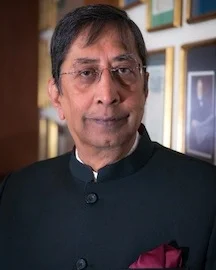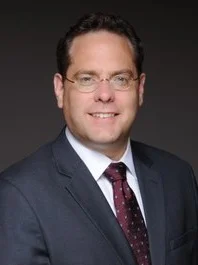Our People
The MHCR family is made up not just of the employees listed below, the George Mason faculty, and their students but everyone dedicated to “breaking the barriers that separate people…to overcome differences and heal wounds of the past.”
Executive Director
Anti Pentikäinen
Alongside leading MHCR, Antti is working as a visiting professor at the US Institute for Peace. Before his work at MHCR, Anti established the Network for Religious and Traditional Peacemakers with the U.N. (2015-2019) while also serving as the special envoy for Finland’s prime minister on the Refugee Crisis (2015-2019) as well as advisor for the U.N. assistant secretary-general on prevention of genocide (2017).
For over a decade, Antti led the efforts of the Finn Church Aid (2004-2015) as its executive director, and assumed several leadership positions including special advisor for President Ahtisaari, director at Crisis Management Initiative (2000-2004) and Religions for Peace (2010-2011). He brings peace processes and reconciliation experience in places like Somalia, South Sudan and Libya, and he will focus on understanding the roles of Insider Reconcilers, connecting better community-level efforts with state level political processes and developing support mechanisms for these efforts.
Antti holds a Master of Theology at Helsinki University and is an author within Inclusive Peacebuilding: Recognised but not Realised.
Board of Directors
Kevin Avruch is the Henry Hart Rice Professor of Conflict Resolution, and Professor of Anthropology in the School for Conflict Analysis and Resolution, at George Mason University. He was S-CAR’s dean from 2013-2019. He has published more than seventy articles and essays and is author or editor of six books, including Critical Essays on Israeli Society, Religion, and Government (1997), Culture and Conflict Resolution (1998) Information Campaigns for Peace Operations (2000), Context and Pretext in Conflict Resolution: Culture, Identity, Power and Practice (2012), and Conflict Resolution and Human Needs: Linking Theory and Practice (2013). Avruch was a senior fellow in the Jennings Randolph Program for International Peace at the USIP; a Joan B. Kroc Peace Scholar at the Kroc School of Peace Studies, University of San Diego; and a Fulbright Specialist at the Malaviya Peace Research Centre, Banaras Hindu University.
Viji George is President Emeritus, Concordia College and President, George and Associates Consulting. Dr. George has an intimate understanding of complex organizations and has a proven track record as fundraiser for causes he is passionate about. Over the years, he has been interested in issues related to conflicts originating from religious animosity and misunderstanding and seeking ways to bringing peace between conflicted communities. He has traveled and worked extensively around the world and feels that the missional intent of MHCR is much needed at a time like this. Dr. George also serves on other non-profit boards where he lends his time and expertise. He is married to Janet and has two daughters, Sarah and Emilie.
Jim Hoch is a founding partner of Tailwind Capital, a New York City private equity firm. He has been actively involved in the private equity business for more than 30 years, and has served on the boards of over 25 public and private companies. Prior to joining Tailwind, Jim was Managing Director at Morgan Stanley. Jim has been involved supporting a number of higher educational institutions, including through the the Parents’ Committees at Williams College and Duke University, support of Concordia College in Bronxville and the Concordia Conservatory. Jim helped organize Al Amana International and currently serves as the organization’s Chairman. Jim has been a member of the Reformed Church of Bronxville for over 25 years, where he currently serves as an Elder and the Treasurer.
Doug Leonard
Awaiting Bio
Susan H. Allen directs the Center for Peacemaking Practice at George Mason University. She has engaged long-term in conflict resolution in the South Caucasus and contributed to conflict resolution initiatives in Eastern Europe, Eurasia, the Caribbean, South America, and Africa.
Allen has a Ph.D. (2000) and M.S. (1995) degrees from S-CAR. Allen joined the S-CAR core faculty in 2005 after two years teaching International Peace and Conflict Resolution as Assistant Professor at the School of International Service at American University.
Allen serves on the Editorial Committee of the journal Peacebuilding and on the Editorial Boards of the African Peace and Conflict Journal, and Caucasus Edition. She is on the Board of Directors of the Alliance for Conflict Transformation
Marc Gopin is the Director of the Center for World Religions, Diplomacy and Conflict Resolution (CRDC), the James H. Laue Professor at the School for Conflict Analysis and Resolution at George Mason University, Arlington, Virginia, USA. Gopin has pioneered projects at CRDC in Afghanistan, Iran, Syria, Palestine and Israel. Gopin has trained thousands of people worldwide in peacebuilding strategies for complex conflicts. He conducts research on values dilemmas as they apply to international problems of clash of cultures, globalization and development, and social justice. The direction of his new research and teaching investigates the relationship between global trends in nonviolence and new approaches to global conflict resolution. Dr. Gopin received a Ph.D. in ethics from Brandeis University in 1993.
Dr. Douglas Irvin-Erickson has worked in the field of genocide studies and mass atrocity prevention in DR Congo, Burundi, Cambodia, Myanmar, Ukraine, and Argentina. He is the author of books, chapters, and articles on genocide, religion and violence, human security, international criminal law, and political theory. His first book is titled Raphaël Lemkin and the Concept of Genocide (University of Pennsylvania Press, 2017), and he is currently writing a second book, Dying in the Age of Thoughtlessness: Genocide, Terror, and Conflict Resolution. Irvin-Erickson is a Senior Fellow with the Alliance for Peacebuilding, a Board Member of the Institute for the Study of Genocide, and a member of the editorial board of Genocide Studies and Prevention: An International Journal. He holds a Ph.D. in Global Affairs and an M.A. in English Literature from Rutgers University, in Newark, NJ, USA.
S- CAR Faculty
Maria Seniw is the Director of Development for the School for Conflict Analysis and Resolution (S-CAR) at George Mason University, overseeing philanthropy and alumni relations for the school. In her role, Maria works closely with the Dean of S-CAR and the Office of Advancement and Alumni Relations to create a sustainable fundraising program that allows for multiple points of entry and engagement. With over 10 years of experience in front-line fundraising, strategic planning, alumni relations, and development operations, Maria is a proud steward of relationships with alumni and partners most committed S-CAR’s success.
Maria holds a BA in government and international politics from George Mason University.
Juliette Shedd is currently the Associate Dean at the School for Conflict Analysis and Resolution, George Mason University and teaches both introductory courses and courses on terrorism, extremism, global conflicts, and ideologies. She holds a Ph.D. and M.S. in Conflict Analysis and Resolution from George Mason University and a BA in Political Science and Psychology from George Washington University. Her research includes work on the relationship of media to conflict, specifically focused on media coverage of terrorism and the role of women in political violence. She has shepherded S-CAR’s efforts to increase distance education and overseen a wide range of innovations in experiential and service learning. She served as the academic project manager for the development of the school’s Point of View International Retreat and Research Center.










